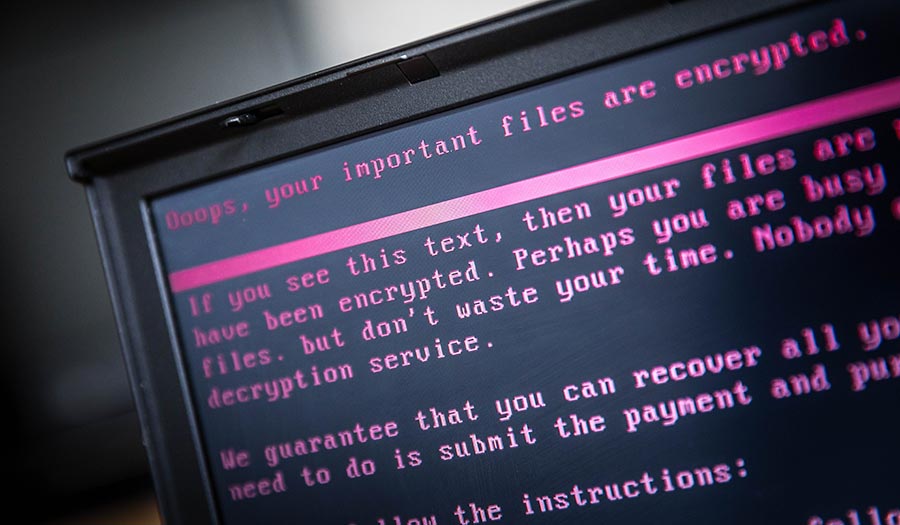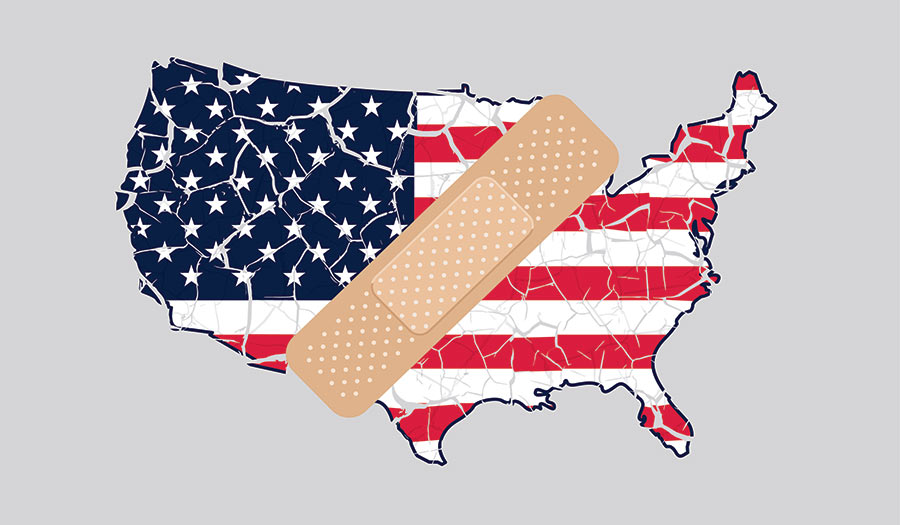 Rob Engelaar/ANP/AFP via Getty Images
Rob Engelaar/ANP/AFP via Getty Images
World News Desk
Learn the why behind the headlines.
Subscribe to the Real Truth for FREE news and analysis.
Subscribe NowBOSTON (AP) – If your business falls victim to ransomware and you want simple advice on whether to pay the criminals, do not expect much help from the U.S. government. The answer is apt to be: It depends.
“It is the position of the U.S. government that we strongly discourage the payment of ransoms,” Eric Goldstein, a top cybersecurity official in the Department of Homeland Security, told a congressional hearing last week.
But paying carries no penalties and refusing would be almost suicidal for many companies, especially the small and medium-sized. Too many are unprepared. The consequences could also be dire for the nation itself. Recent high-profile extortive attacks led to runs on East Coast gas stations and threatened meat supplies.
Although the Biden administration has made battling ransomware crime a national security priority, public officials are fumbling over how to respond to the ransom payment dilemma. In an initial step, bipartisan legislation in the works would mandate immediate federal reporting of ransomware attacks to assist response, help identify the authors and even recoup ransoms, as the FBI did with most of the $4.4 million that Colonial Pipeline recently paid.
Without additional action soon, however, experts say ransoms will continue to skyrocket, financing better criminal intelligence-gathering and tools that only worsen the global crime wave.
Energy Secretary Jennifer Granholm said this month that she is in favor of banning payments. “But I don’t know whether Congress or the president is” in favor, she said.
And as Ms. Goldstein reminded lawmakers, paying does not guarantee that you will get your data back or that sensitive stolen files will not end up for sale in darknet criminal forums. Even if the ransomware crooks keep their word, you will be financing their next round of attacks. And you may just get hit again.
In April, the then-top national security official in the Justice Department, John Demers, was lukewarm toward banning payments, saying it could put “us in a more adversarial posture vis-a-vis the victims, which is not where we want to be.”
Perhaps most vehement about a payment ban are those who know ransomware criminals best—cybersecurity threat responders.
Lior Div, CEO of Boston-based Cybereason, considers them digital-age terrorists. “It is terrorism in a different form, a very modern one.”
A 2015 British law prohibits UK-based insurance firms from reimbursing companies for the payment of terrorism ransoms, a model some believe should be applied universally to ransomware payments.
“Ultimately, the terrorists stopped kidnapping people because they realized that they weren’t going to get paid,” said Adrian Nish, threat intelligence chief at BAE Systems.
U.S. law prohibits material support for terrorists, but the Justice Department in 2015 waived the threat of criminal prosecution for citizens who pay terrorist ransoms.
“There’s a reason why that’s a policy in terrorism cases: You give too much power to the adversary,” said Brandon Valeriano, a Marine Corps University scholar and senior adviser to the Cyberspace Solarium Commission, a bipartisan body created by Congress.
Some ransomware victims have taken principled stands against payments, the human costs be damned. One is the University of Vermont Health Network, where the bill for recovery and lost services after an October attack was upwards of $63 million.
Ireland, too, refused to negotiate when its national healthcare service was hit last month.
Five weeks on, healthcare information technology in the nation of 5 million remains badly hobbled. Cancer treatments are only partially restored, email service patchy, digital patient records largely inaccessible. People jam emergency rooms for lab and diagnostic tests because their primary care doctors cannot order them. As of Thursday, 42 percent of the system’s 4,000 computer servers still had not been decrypted.
The criminals turned over the software decryption key a week after the attack—following an unusual offer by the Russian Embassy to “help with the investigation”—but the recovery has been a painful slog.
“A decryption key is not a magic wand or switch that can suddenly reverse the damage,” said Brian Honan, a top Irish cybersecurity consultant. Every machine recovered must be tested to ensure it is infection-free.
Data indicate that most ransomware victims pay. The insurer Hiscox says just over 58 percent of its afflicted customers pay, while leading cyber insurance broker Marsh McLennan put the figure at roughly 60 percent for its affected U.S. and Canadian clients.
But paying does not guarantee anything near full recovery. On average, ransom-payers got back just 65 percent of the encrypted data, leaving more than a third inaccessible, while 29 percent said they got only half of the data back, the cybersecurity firm Sophos found in a survey of 5,400 IT decision-makers from 30 countries.
In a survey of nearly 1,300 security professionals, Cybereason found that 4 in 5 businesses that chose to pay ransoms suffered a second ransomware attack.
That calculus notwithstanding, deep-pocketed businesses with insurance protection tend to pay up.
Colonial Pipeline almost immediately paid last month to get fuel flowing back to the U.S. East Coast—before determining whether its data backups were robust enough to avoid payment. Later, meat-processing goliath JBS paid $11 million to avoid potentially interrupting U.S. meat supply, though its data backups also proved adequate to get its plants back online before serious damage.
- Real Truth Magazine Articles
- HEALTH ISSUES
 U.S. Healthcare: What’s the Prognosis?
U.S. Healthcare: What’s the Prognosis?
Other Related Items:
- Jails Emptied in the Pandemic. Should They Stay That Way?
- Water Crisis: What Happens When There’s Nothing Left to Drink?


